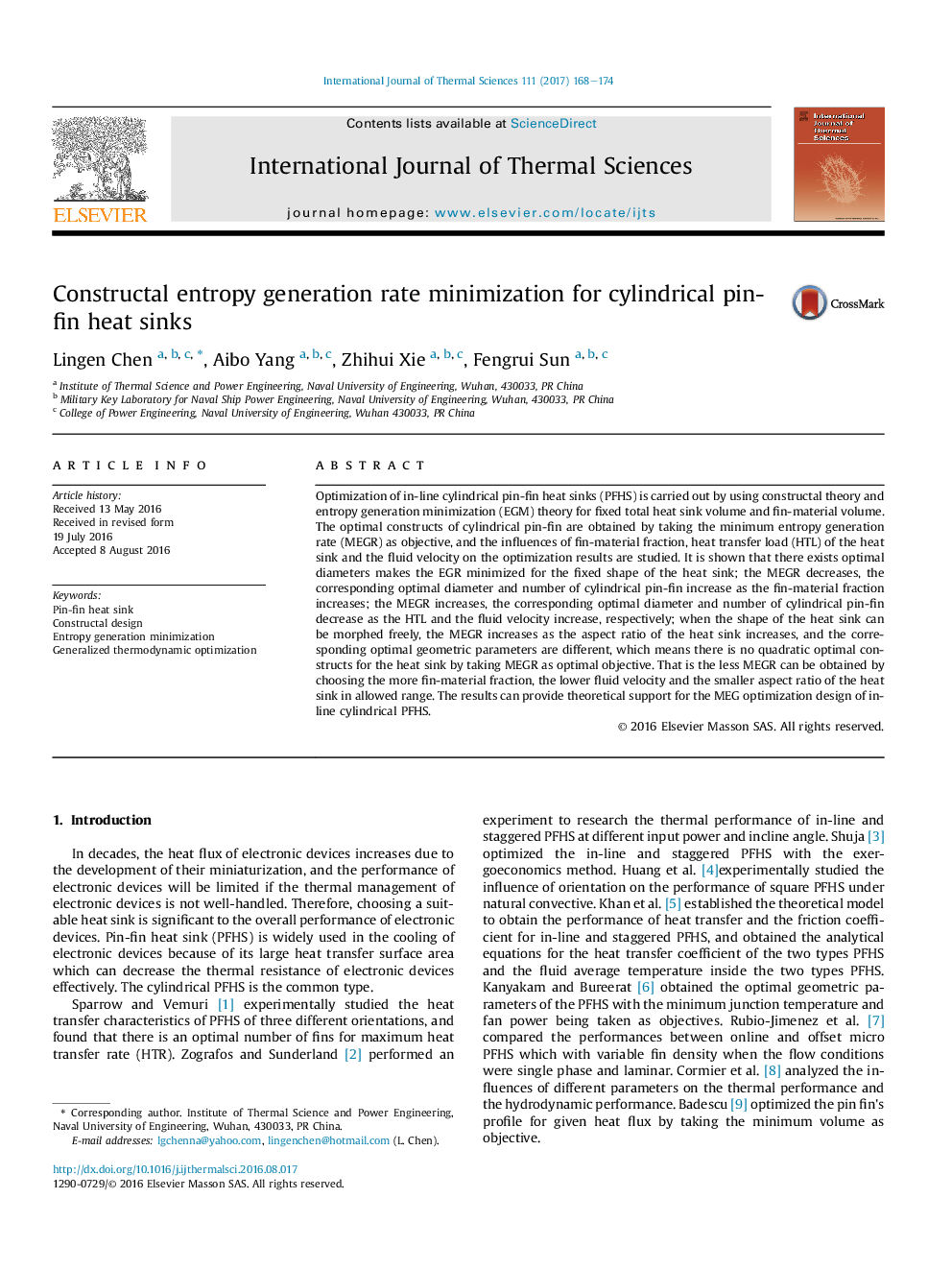| Article ID | Journal | Published Year | Pages | File Type |
|---|---|---|---|---|
| 7060907 | International Journal of Thermal Sciences | 2017 | 7 Pages |
Abstract
Optimization of in-line cylindrical pin-fin heat sinks (PFHS) is carried out by using constructal theory and entropy generation minimization (EGM) theory for fixed total heat sink volume and fin-material volume. The optimal constructs of cylindrical pin-fin are obtained by taking the minimum entropy generation rate (MEGR) as objective, and the influences of fin-material fraction, heat transfer load (HTL) of the heat sink and the fluid velocity on the optimization results are studied. It is shown that there exists optimal diameters makes the EGR minimized for the fixed shape of the heat sink; the MEGR decreases, the corresponding optimal diameter and number of cylindrical pin-fin increase as the fin-material fraction increases; the MEGR increases, the corresponding optimal diameter and number of cylindrical pin-fin decrease as the HTL and the fluid velocity increase, respectively; when the shape of the heat sink can be morphed freely, the MEGR increases as the aspect ratio of the heat sink increases, and the corresponding optimal geometric parameters are different, which means there is no quadratic optimal constructs for the heat sink by taking MEGR as optimal objective. That is the less MEGR can be obtained by choosing the more fin-material fraction, the lower fluid velocity and the smaller aspect ratio of the heat sink in allowed range. The results can provide theoretical support for the MEG optimization design of in-line cylindrical PFHS.
Keywords
Related Topics
Physical Sciences and Engineering
Chemical Engineering
Fluid Flow and Transfer Processes
Authors
Lingen Chen, Aibo Yang, Zhihui Xie, Fengrui Sun,
